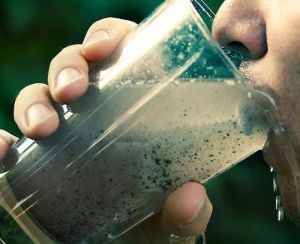Dangers of organic waste
- Victor Tan

- Mar 20, 2021
- 2 min read
Organic waste or biodegradable waste are wastes derived from any type of living matter. The most obvious example of household organic waste would be food scraps and egg shells. Organic waste should be managed properly because they can harm our environment if it is not handled properly.
In this article, we are going to be listing some environmental impacts and health hazards from organic waste so that you guys know the importance of handling organic waste properly.
1. Air pollution

Landfills are not the answer to organic waste. This is said because according to Drescher and Zurbrügg, organic wastes in landfills are generally decomposed anaerobically, which will result in methane production. Besides methane gas, other gasses such as carbon dioxide, hydrogen sulphide are released as well. Both carbon dioxide and methane are greenhouse gasses that may contribute to global warming if it is released in large quantities.
Furthermore, methane produces carbon monoxide which is a toxic gas that can cause visual perception, headaches, loss of consciousness, or even death if it is inhaled in larger quantities.
Anaerobic decomposition of organic waste will also produce nitrogen dioxide which may cause health hazards such as inflammation of the lung tissues and even death. Nitrogen dioxide can also cause acid rain as well.
Hydrogen sulphide produced through anaerobic decomposition can produce unpleasant odors which can be a nuisance. Besides that, it can also cause upper airway irritation and nausea for surrounding people.
2. Breeding grounds for microorganism and attraction of vectors and rodents

The dumping of organic waste in drains and open landfills serve as a feeding ground for disease carrying pathogen, as well as attracting various unwanted disease-carrying vectors and rodents. According to estimations done by the World Health Organization (WHO), contamination of water and unhygienic conditions are responsible for 80% of diseases in developing countries.
3. Water contamination

When organic waste decomposes at open landfills and gets infiltrated with rain, a leachate, containing the dissolved organic waste extract is produced. The leachate will have a low biochemical oxygen demand (BOD) value. BOD is the measure of the amount of dissolved oxygen consumed by bacteria and other microorganism. When the leachate comes into contact with other sources of water, the oxygen in the water will be depleted. This will result in an aquatic environment that can no longer support aquatic life, which are dependent on oxygen. Additionally, when the oxygen level reaches 0, the toxic gas hydrogen sulphide will form, which will result in the death of all aquatic life that cannot escape from the toxic environment.
Contaminated water can also cause health hazards. In developing countries, one of the most common causes of death among children under 5 years is diarrheal disease caused by contamination of water supplies.
As you can see, the impacts of organic waste on the environment and human health are severe. Therefore, it is crucial to manage organic waste properly. What do you think about organic waste? Comment down below!
Links:


Comments